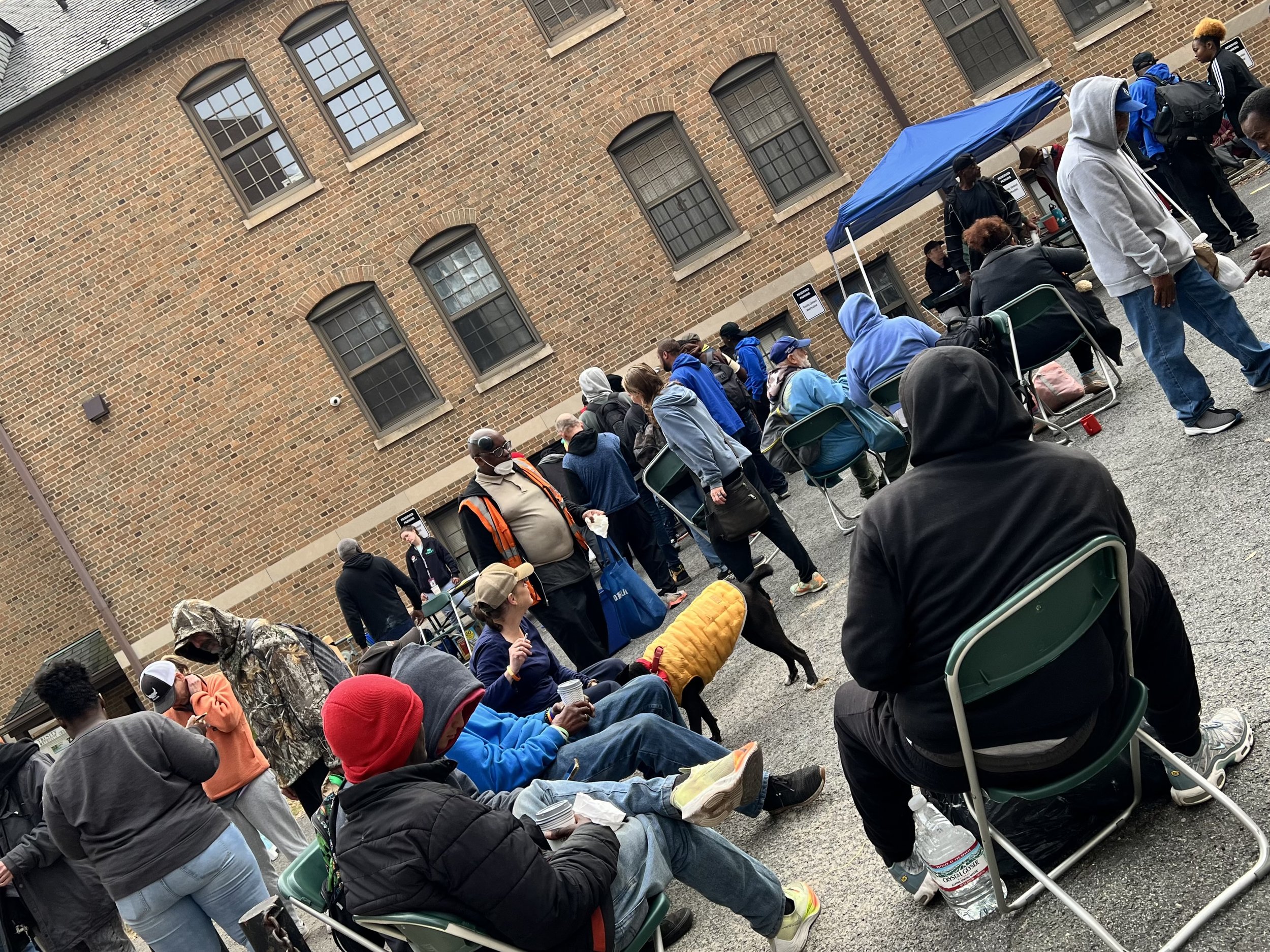Community vs. Efficiency
I must admit, the first time I helped with a Tuesday morning “Free Store” I thought it was an especially inefficient system. Free Store is how we distribute clothing to our unhoused neighbors. If you went to a thrift store, you could probably go in, pick out what you want and be out in under a half hour. If you come to Free Store, well, expect that process to involve at least 20 other people and take about 4 hours.
By 7:30 in the morning our small parking lot is already bustling with activity. The Fresh Start Durham showers truck has a line, one guy is getting a haircut, and several people are milling around rubbing their hands together to stay warm, waiting for a number. Our “numbers” are carefully drawn with permanent marker on index cards, cut evenly into 75 brightly colored rectangles, held into a stack by a rubber band. We hand out the numbers first-come, first-serve and they typically run out before we even start "check in” at 9:30.
We set up five tables. We set up one table for Pam and the team from Reality Ministries to hand out hot coffee. We set up one table for Scott, the elderly veteran who makes two giant pots of steaming soup every Tuesday. We set up one table for HEART, the City of Durham emergency response team. And we set up two tables for “check in”.
“Check in” is manned by two staff, myself, two laptops, and one yeller. The yeller has to compete with all the surrounding traffic and crowd, calling out the numbers in order. Then one-by-one, neighbors come up to the check-in tables where we review their eligibility. We limit clothing to once per month, and shoes, jeans, and backpacks to once every three months, and only for those living outside, not in a shelter. Even then, we don’t have nearly enough donations. If you’re number 75, well, you get what you get. After eligibility has been confirmed, we hand our neighbor a 5x8 paper form partially filled with their information and direct them to the four volunteers with purple clipboards standing on the sidewalk.
Those volunteers with purple clipboards interview each neighbor and fill out the form according to their clothing needs and sizes. Then, a runner comes up and gathers the filled forms and runs them down into the basement of Trinity church. The basement contains four rooms of sorted supplies and up to a dozen more volunteers, working like bees to gather each item on each form and fill up a white trash bag for each neighbor. After the bag has been carefully marked with the corresponding name, someone else takes it outside and yells out the name and then finally our neighbor can leave with their clothes.
If you feel a little exhausted and confused at this point, just imagine how the volunteers and neighbors feel! Or at least, how you think they might feel. But on Tuesdays in the parking lot, I don’t see the inefficient system causing exhaustion or confusion; instead, I see people energized and excited. I see them talking about their lives to volunteers and one another while they wait. I see people coming early just to hang out. I see fist bumps and hugs. I see them walk away with smiles and I know that even if they don’t need any clothes, they’ll show up again next week, rain or shine. Maybe for some things efficiency is overrated, or even irrelevant. Maybe what is most important for Free Store is quality time in community.
Brant Copen, OTM Ministerial Intern

